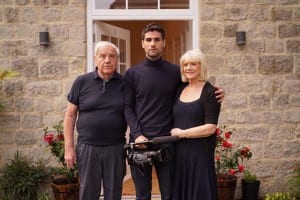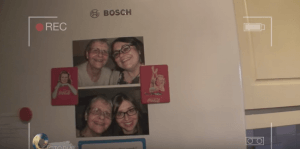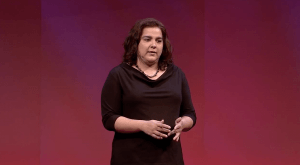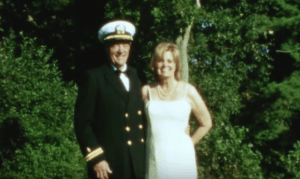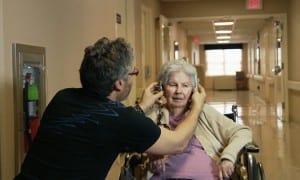The documentary Grandad, Dementia and Me starts off with archive footage of his grandfather, and then switches between present day and the past a few times before revealing the title. The reveal of having it switch between this past ‘dreamlike’ state and real life is contrasting these two differing times, but also gives the audience an idea of what ‘Grandad’ is feeling, not know whats going on, continuously switching between a mindset that is cemented in the past and a mindset that is constantly fighting the reality of dementia and its connotations.
This documentary was heartfelt and obviously very personal to the filmmaker, however we only ever found clips of the documentary online and were unable to find a full copy, so I emailed the company that produced the film asking for a copy and they were kind enough to send it to us.
The documentary really established the closest documentation of a father-son dynamic that was related to dementia that we could find, and it delivered. We uncovered the harshness of the disease and the way it robs the patient of all independence.
